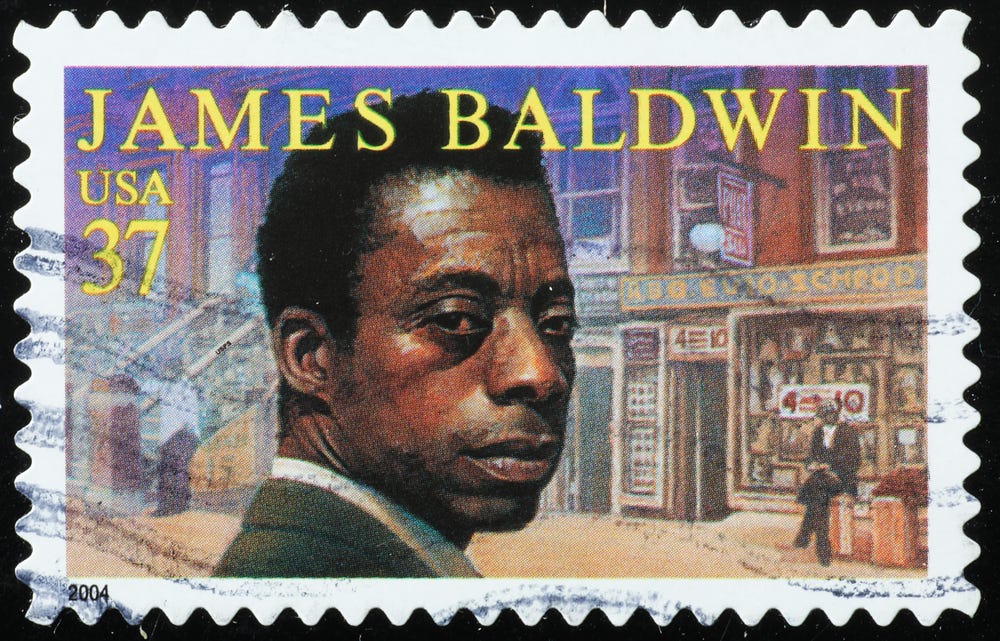E-Pluribus | January 4, 2022
The value of diversity (yes, diversity!) in political parties, authoritarianism on the right, and James Baldwin on race and identity.
A round up of the latest and best writing and musings on the rise of illiberalism in the public discourse:
Chris Stirewalt: On January 6, Two Parties but Many Sides
Although his focus is mainly on Republicans, Chris Stirewalt writing at The Dispatch says we should not underestimate the value of ideological diversity within our two political parties. Given that such diversity already exists, parties should maximize the positive aspects and work together rather than press for uniformity.
Joe Manchin and Bernie Sanders are in the same party, but you wouldn’t really say they were on the same “side” beyond the bare preference for partisan control in Washington. Same for Ben Sasse and Josh Hawley. They’re both Republicans, but there’s little overlap beyond their registrations.
In political discussions these days, I often have to redirect an interviewer or a conversational partner around these channel markers. “I don’t know if I would call him ‘conservative,’ per se …” or “I’m not sure there’s too much that’s ‘liberal’ about those members …” We’ve got Republicans preaching the kind of economic progressivism that would tickle Bob La Follette. We’ve got Democrats pushing speech codes and indoctrination as puritanical and authoritarian as those of any red-baiter or Roundhead.
Ideological diversity within parties is often a good thing, creating room for the coalitions necessary to address challenging issues. Most members of Party A working with some members of Party B are far more likely to produce broadly popular policies than a party-line vote would.
It’s true that broad popularity and excellence are very different things. A quick scan through the top songs of 2021 will tell you that. But the dangers of partisan homogeneity are even greater. It’s far easier for one party to become enthralled by a bad idea or bad leaders than it is for a bipartisan group. That presents a real danger when one side or the other takes complete control.
Read it all.
Veronique de Rugy: In 2022, Pay Attention to Right-Wing Authoritarianism
Dominance of left-wing versions of authoritarianism in recent decades should not obscure the danger on the right. Veronique de Rugy at Reason points to numerous examples around the world (while not letting the US off the hook) where reactions against encroachments by the left have given rise to overreach on the right.
For decades, those inclined toward free markets have focused on authoritarianism coming from the political left. We have spared no energy denouncing and opposing it. We've rightfully been concerned about the push to centralize more power in the hands of federal governments and to increase the scope and size of all government. We have warned that these policies, pursued consistently, pave what the great F.A. Hayek called "the road to serfdom."
This fight should continue. However, it's time to be equally harsh toward those on the right who want to use state power to control individuals' choices and destroy those with whom they disagree. In America, this illiberalism was visible in many of the policies pushed by former President Donald Trump, including industrial policies riddled with favoritism and hostility to foreign workers and immigrants. It peaked during the last months of his presidency with claims of stolen elections and other conspiracy theories.
[…]
Illiberalism has also taken root among many conservative intellectuals. While there have always been different strains of thinking among neoconservatives, populists, and other thought leaders on the right, these groups increasingly define themselves by their opposition to the left while endorsing policies that are just as terrible.
[…]
While this development is alarming on its own, it carries an additional danger. As Shikha Dalmia and Arthur Melzer argued, if the right uses the illiberalism of the left to justify its own—as happened in post-World War I Weimar Germany—America would risk falling into authoritarianism.
Unfortunately, the rise of right-wing authoritarianism isn't unique to America. It's taking root in many countries, including Sweden, Hungary, France, and India.
Read it all here.
ICYMI: Sahil Handa: What James Baldwin Can Teach Us About Race and Identity in America Today
Last August, Sahil Handa took a look back at the writings of the legendary James Baldwin for some insight into modern day conflicts over race and identity. While race relations have clearly improved overall, it remains true that there is nothing new under the sun, and James Baldwin and his contemporaries faced some of the same questions about race and class a new generation is squabbling over today.
As a young man, Baldwin began to “suspect that white people did not act as they did because they were white.” Understanding the real reason quickly became his key to solving the problem of race in America. After achieving literary success and finding himself in social circles that so many of his Black friends had envied, he began to form an answer. While he dined with Margaret Mead and partied with Norman Mailer, he realized that this predominantly white world was not different—at least, not essentially different—from the world he had known at home in Harlem. In an essay from his 1961 collection, “Nobody Knows My Name,” he puts it this way:
It seemed different. It seemed safer . . . cleaner, more polite, and, of course, it seemed much richer from the material point of view. But I didn’t meet anyone in that world who didn’t suffer from the very same affliction that all the people I had fled from suffered from and that was that they didn’t know who they were.
The final sentence is clunky, inelegant and uncharacteristic of Baldwin’s prose. But that is because he is hitting upon a truth that fails to fit the neat, coherent medium of polemic. He goes on:
Very shortly I didn’t know who I was, either. I could not be certain whether I was really rich or really poor, really black or really white, really male or really female, really talented or a fraud, really strong or merely stubborn. In short, I had become an American. I had stepped into, I had walked right into, as I inevitably had to do, the bottomless confusion which is both public and private, of the American republic.
The American race problem was a peculiarly American problem because America had used race to make up for something absent in its personality. Baldwin wrote these words in Paris, where he had moved in 1948 to escape America, and the experience had enabled him to create an individual identity beyond his Blackness. But doing so also made him realize that he would have no choice but to return to America, for America—and the question of race in America—was the “central reality” of his life.
[…]
In our current racial discourse, being thought an oddball—or, God forbid, wrong—is more and more frequently avoided at all costs. One is either racist or anti-racist, white or Black, with us or against us, an ally or an enemy. Thinking about one’s “privilege” is a task reserved only for certain people. And for those who are asked to turn inside and question themselves, they are told to make every effort to keep hidden what they find.
But Baldwin’s work continues to resonate, 34 years after his death, because he saw that politics could be conducted only by equal participants, just as two lovers could build a relationship only by opening their hearts on equal terms. He did not present himself—or Black people as a group—as innocent, nor white people as guilty. He tried to do something more honest. He tried to show that he, other people and therefore America were a mixture of both.
Read the whole thing.
Around Twitter
Update on yesterday’s Facebook advertising ban on the Heroes of Liberty conservative children’s book publisher. Facebook reversed itself and promptly notified… Congress members… but not the publisher:
Still no response from Facebook Communications on what the “error” was that Facebook made regarding Heroes of Liberty:
A short back and forth over “progressive” and “liberal” via Ryan Chittum and Robert Tracinski:
Finally, in the context of a tweet praising Joe Rogan, Peter Boghossian tries to clear up confusion over what “honest” means:









